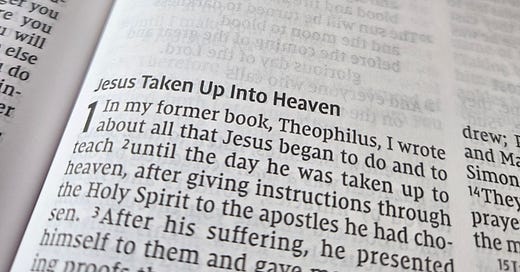Upgrade to paid to play voiceover
Today, I’m beginning this series on Acts. What I’m sharing are my reflections as I read through this great book. In most cases I did not seek out a commentary, if I did I’ll make sure to bring it up. I may share some things I learned in class as we reflected together on what we can glean from this rich document about the Early Church.
Hint:
When I’m shari…
Keep reading with a 7-day free trial
Subscribe to Gracious Tension by Andrea Calvert to keep reading this post and get 7 days of free access to the full post archives.




